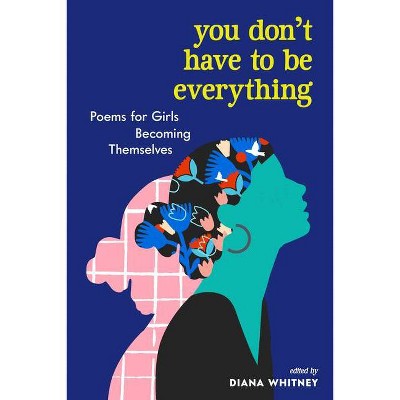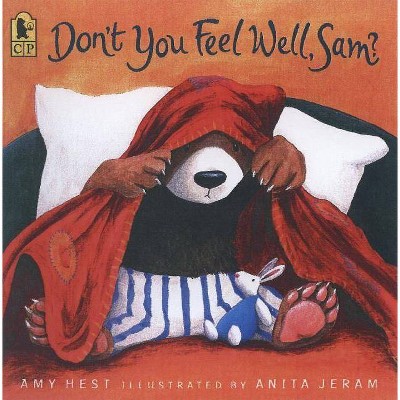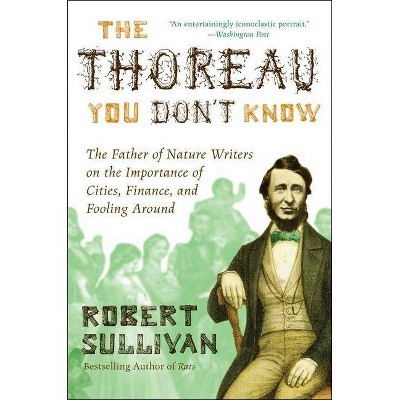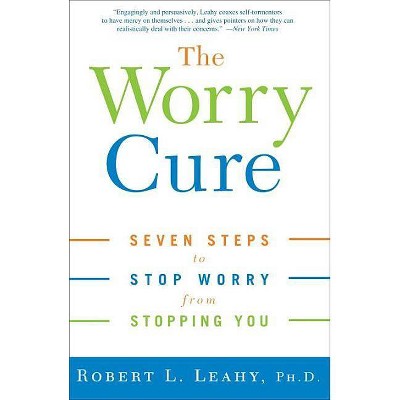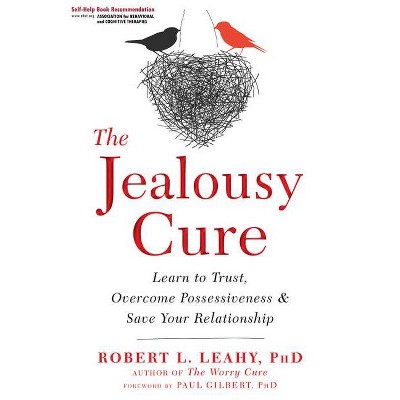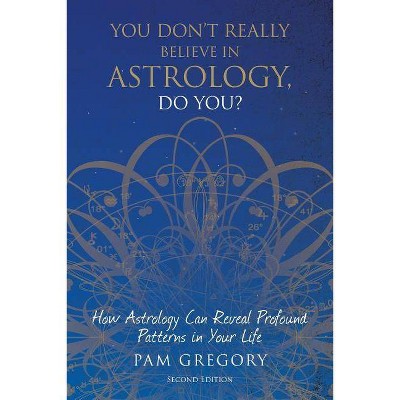Don't Believe Everything You Feel - by Robert L Leahy (Paperback)
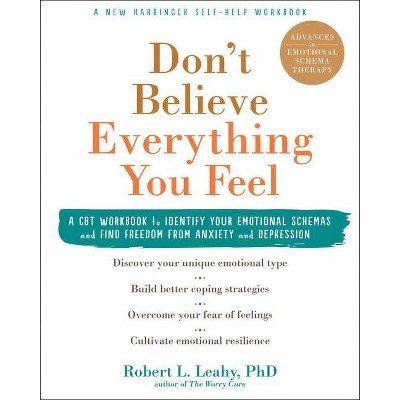
Similar Products
Products of same category from the store
AllProduct info
<p/><br></br><p><b> About the Book </b></p></br></br>Many people struggle with difficult emotions, whether as a result of depression, anxiety, or simply dealing with the common struggles of daily life. Based on the groundbreaking theory of emotional schema, this workbook helps readers explore their own deeply held personal beliefs about emotions, determine if these beliefs are helpful or harmful, and find the motivation to adopt alternative coping strategies. With this guide, readers will learn to increase their capacity to feel the full range of life's emotions at the center of a meaningful life.<p/><br></br><p><b> Book Synopsis </b></p></br></br><p><b>Find lasting freedom from difficult emotions with skills grounded in cognitive behavioral therapy (CBT) and emotional schema therapy.</b></p><p>If you struggle with difficult emotions, you should know that you aren't alone. Many people feel sad, worried, or stressed out--whether as a result of depression, anxiety, or simply dealing with the common struggles of daily life. Emotions are a natural and healthy part of being human. It's how we cope with these difficult emotions that reveal our true capacity for happiness, love, and joy.</p><p><i>Don't Believe Everything You Feel</i> offers a groundbreaking approach blending CBT and emotional schema therapy to help you explore your own deeply held personal beliefs about emotions, determine if these beliefs are helpful or harmful, and find the motivation to adopt alternative, healthier coping strategies. Each chapter contains exercises such as self-assessment, expressive writing, or guided questioning to help you manage your emotions more productively.</p><p>There's no such thing as a "bad," emotion. But if you're experiencing sadness, anger, or anxiety most of the time, you need to find balance. This book will show you how to better cope with your emotions and live a full, meaningful life.</p><p/><br></br><p><b> Review Quotes </b></p></br></br><br>"As with all books done by Leahy, this is a well-thought-out, clearly written, and carefully presented book, replete with individual stories and helpful worksheets. Its goals are to help individuals discover their emotional style, adopt better coping strategies, overcome fear of feelings and cultivate emotional resilience." <br><b>--<i>Child & Family Behavior Therapy</i></b>-- "Child & Family Behavior Therapy"<br><br>"I whole heartedly recommend this book. It goes on a very short list of books like <i>The Feeling Good Handbook</i> and <i>The Happiness Trap</i> that I recommend to family and friends, as well as clients." <br><b>--</b><b><i>Advances in Cognitive Therapy</i></b> newsletter-- "Advances in Cognitive Therapy" (10/1/2020 12:00:00 AM)<br><br>"Emotions define us as a human species. Robert Leahy's book, <i>Don't Believe Everything You Feel</i>, holds the key to understanding the secret of living a human life with its confusing experiences ranging from joy and happiness to depression and anxiety. This superb text outlines his influential emotional schema therapy approach using cognitive and behavioral principles. Written by a master clinician--one of the most influential authors and foremost leaders of CBT--this text is destined to become a classic. Clearly a must-read for any clinician, trainee, client, and anybody interested in emotions and psychotherapy." <br> --<b>Stefan G. Hofmann, PhD</b>, professor in the department psychological and brain sciences at Boston University--Stefan G. Hofmann, PhD<br><br>"In <i>Don't Believe Everything You Feel</i>, author Robert Leahy provides a step-by-step guide to accepting emotions, rather than scrambling to change them; the use of adaptive, rather than unhelpful, emotional coping strategies; and an orientation to valued living. If you are experiencing emotional challenges--whether depression, or anxiety, or anger, or something else--you'll find this book to be an invaluable resource for helping to navigate those challenges." <br> --<b>David F. Tolin, PhD, ABPP</b>, author of <i>Face Your Fears</i>--David F. Tolin, PhD, ABPP<br><br>"Robert Leahy is one of most influential clinicians in the field of psychology today. His latest book, <i>Don't Believe Everything You Feel</i>, is based on the principles of cognitive behavioral therapy (CBT) as well as emotional schema therapy, and details an innovative way of coping with difficult feelings. Case examples and exercises found within illustrate how to live a full life by allowing the experience of a full range of emotions. I highly recommend this accessible and inspiring self-help book!" <br> --<b>Sabine Wilhelm, PhD</b>, professor at Harvard Medical School, and chief of psychology at Massachusetts General Hospital--Sabine Wilhelm, PhD<br><br>"To be human is to experience a tapestry of emotions. Now, for the first time, internationally renowned author and clinical psychologist Robert Leahy offers an inspiring workbook based on his unique theory of emotion. His integration of cognitive-behavioral and acceptance perspectives is a refreshing departure from conventional therapies that take a more pathogenic view of emotion. This workbook is packed full of wisdom, guidance, intervention strategies, and step-by-step exercises and worksheets that will transform a broad range of negative and distressing emotions. Written with conviction, compassion, and encouragement, readers will find the many case examples engaging and illuminating. Leahy gently, but persuasively, guides the reader through a process of discovery and emotional transformation that enables individuals to better themselves, enrich their relationships, and experience what it means to be authentically alive." <br> --<b>David Clark, PhD</b>, professor emeritus in the department of psychology at the University of New Brunswick--David Clark, PhD<br><br>"While animals can show all kinds of emotions that have a lot of overlap with us, humans can clearly think in a range of complex and new ways that other animals can't. While these thinking competencies make us unique, they can also drive us into anxiety and depression. In his new and deeply insightful book on the link between thinking and feeling, internationally renowned cognitive therapist Robert Leahy guides us skillfully through the minefields and problematic relations between our thoughts and feelings. He identifies clearly how our interpretations and thoughts about situations, and feelings themselves, can make us feel better or worse, engage with them, or try to avoid them. Packed with years of insightful clinical experience, this is a wonderful guide for anyone interested in the relationship between thinking and feeling, and how to get one's mind on a more balanced footing." <br> --<b>Paul Gilbert, </b><b>PhD, FBPsS, OBE</b>, author of <i>Living Like Crazy</i> and <i>The Compassionate Mind</i>--Paul Gilbert, PhD, FBPsS, OBE<br><br>Through numerous self-assessments and exercises, Leahy helps the reader recognize that a rich and meaningful life includes experiencing a full range of emotions, including painful ones. In explicating the centrality of emotions to the human experience, Leahy both validates his readers and invites them to keep moving forward, transcending emotion-based perceived limitations and instead using emotions to increase awareness of priorities and pursue meaningful goals." <br> --<b>Jill Rathus, PhD</b>, professor of psychology at LIU Post; codirector of Cognitive Behavioral Associates in Great Neck, NY; and coauthor of <i>DBT Skills Manual for Adolescents</i> and <i>Dialectical Behavior Therapy with Suicidal Adolescents</i>--Jill Rathus, PhD<br><p/><br></br><p><b> About the Author </b></p></br></br><b>Robert L. Leahy, PhD</b>, is author or editor of twenty-seven books, including <i>The Worry Cure</i>. He has led or been heavily involved with many national and international cognitive behavioral therapy (CBT) organizations. He writes a regular blog for <i>Psychology Today</i>, and has written for <i>HuffPost</i>. Leahy is an international speaker at conferences worldwide, and has been featured in print, radio, and television media such as <i>The New York Times</i>, <i>The Wall Street Journal</i>, <i>The Times</i>, <i>The Washington Post</i>, <i>20/20</i>, <i>The Early Show</i>, and more.
Price History
Cheapest price in the interval: 17.39 on November 8, 2021
Most expensive price in the interval: 17.39 on December 20, 2021
Price Archive shows prices from various stores, lets you see history and find the cheapest. There is no actual sale on the website. For all support, inquiry and suggestion messagescommunication@pricearchive.us



